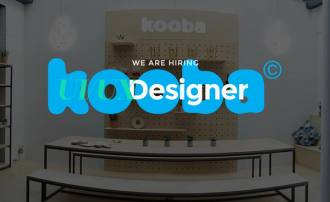As a developer in Kooba, I'm constantly required to respond to unique design challenges. As we provide unique and custom designs to our clients, as developers we need to approach our code in thesame way our designers approach design. No two projects are same, and therefore every project needs to be carefully crafted to better suit those individual requirements and design needs. That's what it means to have a unique website from a developers perspective - unique and handcrafted code.
There is, of course, an alternative. Web Frameworks offer the promise of rapid development - even for those who cannot code - and decent levels of flexibility around what the end product looks like. As frameworks are usually reasonably mature products they tend to ensure a certain level of quality control. It would be pointless attempting to argue that it isn’t possible to build a half-decent website or online presence using these products?
So why don’t we?
Here are many reasons to custom-build websites: I could probably write a book about the subject. But here’s my top seven.
1. It creates better online experiences
First and definitely foremost. I mentioned above that the framwork approach can deliver a ‘half-decent’ website. Unfortunately, our clients tend to be looking for something a little more than half-decent. They want a website that users love. They want something that is a response to their specific business goals and requirements. And that means bespoke design and bespoke development.
Ultimately frameworks exist to make the creation of a website easy. But greatness is never easy - and clients and end users don’t care whether something was easy or hard either. Only custom development can really deliver solutions that make a difference and stand out from the crowd.
2. It improves SEO performance
Handcrafted websites have semantic and well thought out HTML structure, with none of the extra meaningless code added on top which can harm your SEO performance. Well written, semantic code can be optimised in order to ensure that search engines are able to find what they are looking for and as a result deliver improved performance when it comes to the keywords and phrases you care about.
3. It creates better developers
As we handcraft websites, we end up knowing things that we might not know otherwise. Or to look at it the other way around, if we're ignoring the concepts inherent to web development, we're just going to be worse off for it. When we take the custom approach, we know exactly what’s going on in our code. We need to have a deep knowledge of the tools we’re using. When that is the case, if anything does go wrong we already have the knowledge needed to resolve the issue. But there’s more: communication with colleagues becomes more enjoyable when there's a complete understanding of what's going on in the code - and when you as a developer have full control of it. In short - we learn good habits and we develop deep understanding.
4. Frameworks are not your friend in the long term
Styles in frameworks are very verbose and will most definitely lead to lots of HTML that won't be semantic, which not only hurts the project but hurts your SEO performance as well. By using a CSS framework, you already agreed to a set of rules that will be hard for you to bypass once new change requests come along, or at least hard to bypass without bloating your code further. Development actually becomes slower and sloppier, and certainly not faster and easier, which was the goal of using a framework in the first place. With every future iteration, a workaround solution has to be found if it's outside of an already written set of rules, which many times is actually the case.
5. Our designers can enjoy their freedom
I believe our designers aren't great fans of having a set of rules already defined within our code, especially when it's their mission to come up with something new, creative and specific to the client’s requirements. Having a set of rules in code removes their freedom but also their ability to design to the specific challenge and requirements of the customer..
Every designer wants full artistic control over their creations, and in the same way we need to approach our code in a way that is unique to every project. When designers have that freedom, and are consequently in charge of the entire website flow, the site can only benefit from that clarity and consistency of vision.In addition, we're all infinitely better able to respond to any future client requests.
6. Our clients can enjoy their freedom
Custom development means our clients can enjoy more freedom during development and less difficulties when something needs to change in the future: and the truth is that constant change and revision is part of the process when it comes to online development.. Since every part of the website is approached in a unique, custom way, anything can be a subject for a future change or improvement if needed be, since the code has been crafted in a way to be flexible and ready for changes in any stage of the project.
7. Writing code is a craft too
Last but not least, a selfish one! Handcrafted code is beautiful to look at, enjoyable to work with and provides long-term happiness to all parties involved. Many projects we work with have a very long life span and what good nutrition is to humans, so is custom code for websites!







